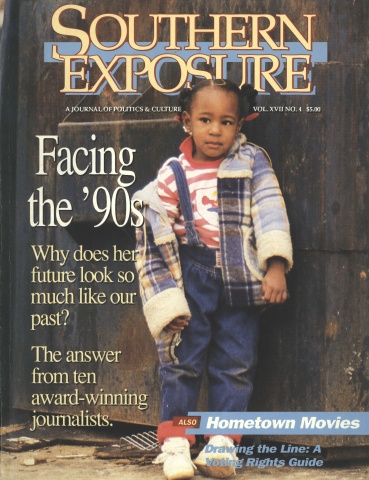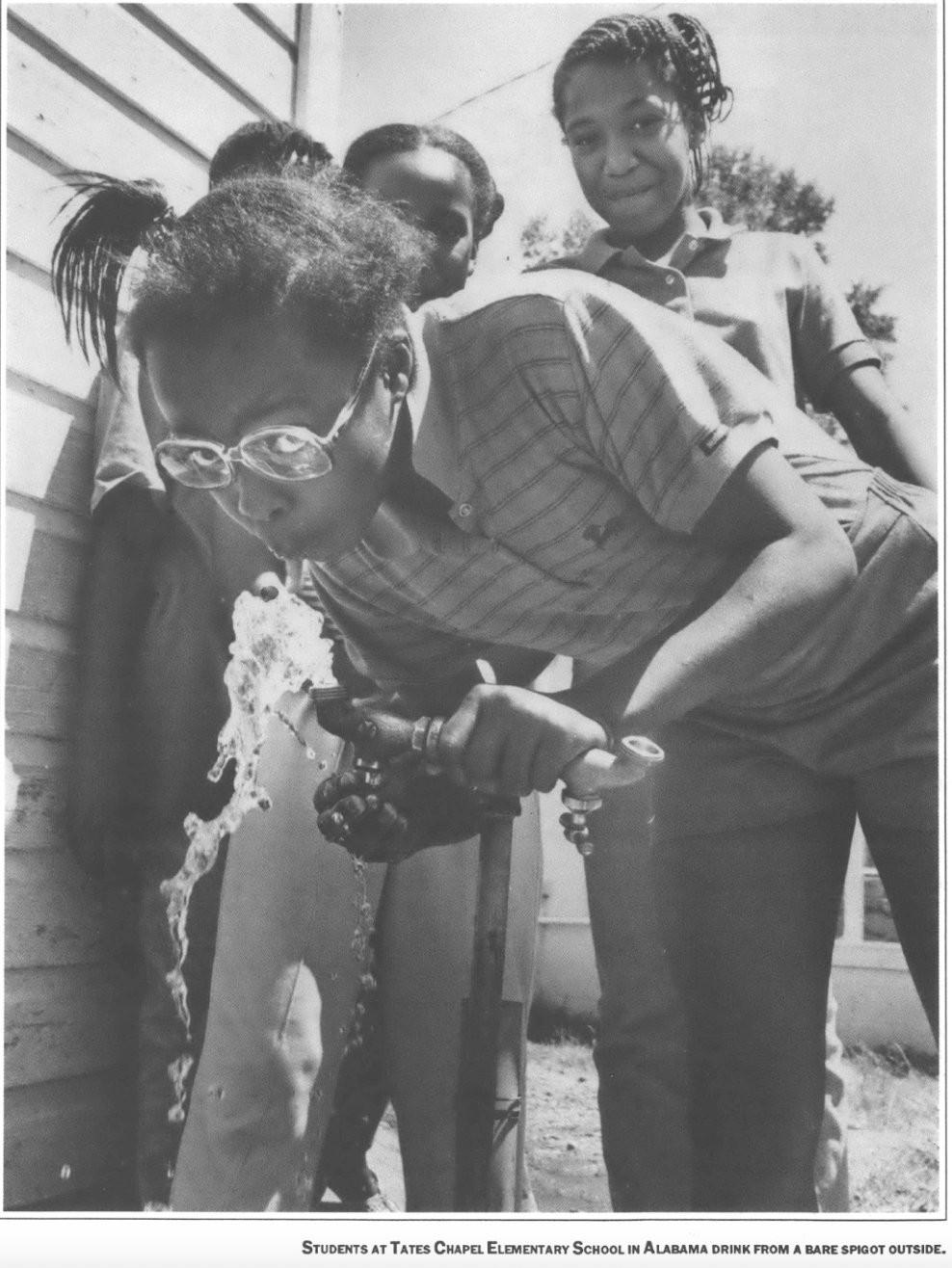
This article originally appeared in Southern Exposure Vol. 17 No. 4, "Facing the '90s." Find more from that issue here.
As we enter a new decade — the last of the 20th century — the rhetoric of New South boosterism continues. We live in a region blessed with fast growth and racial tolerance, we are told, a region of shining progress, where each day looks brighter than the last.
The winners of our 1989 Southern Journalism Awards, sponsored by the Institute for Southern Studies, present quite a different picture. In fact, we were struck by the enduring themes within
their stories:
▼ Students in Alabama schools must go without textbooks and basic supplies because timber companies don’t pay their fair share of property taxes.
▼ West Virginia coal companies contribute tidy sums to state candidates — and receive political favors in return.
▼ Condos and vacation homes are destroying the North Carolina coast, yet officials refuse to control the rapid development.
▼ Federal prisoners across the country are being maimed — and sometimes killed — by inadequate medical care.
▼ Blacks make up a third of Chattanooga, Tennessee, yet only one has been elected to the city commission since 1911.
▼ Poverty runs rampant in the black belt of South Carolina. A third of the poor are children, and most receive no public aid.
The children of the ’90s, it would seem, stand to inherit a New South that looks an awful lot like the old one. The stories excerpted here (and in a special section on voting rights on page 60) reveal an almost feudal system in which corporations wield vast influence over some of the most basic aspects of daily life — our schools, our environment, our standard of living — and politicians sell favors to the highest bidder.
Fortunately, good reporters continue to dig deep, trying to get at the root of what’s going on. And more and more often, their papers print their findings in detail, investing the time and space needed to conduct major investigations and in-depth features.
Unfortunately, many of these same papers also treat their employees like interchangeable parts in a vast newsgathering machine. Reporters, after all, are workers—and like many workers in the New South, they are overworked and underpaid. Reporters at The Alabama Journal — who have won awards every year since our contest began — often earn less than $16,000 a year, even after several years on the job.
The Charleston Gazette, another paper with award-winners three years in a row, offers experienced reporters with graduate degrees in journalism a starting salary of $15,000. Before reporters can accept such a generous offer, however, they must sign a personnel form giving the company the right to fire them at any time — without cause, without notice, and without compensation (“except as to wages owed”).
Despite such conditions, reporters still fight their bosses to print what they discover. When they win — or when editors take the initiative to assign reporters to major investigations — the result is better journalism in our daily paper.
We began the Southern Journalism Awards in 1987 to honor reporters whose stories broaden the range of issues, voices, and sources typically found in the mainstream media. To ensure that this year’s winners were measured by progressive community values as well as professional standards, the entries were reviewed by a panel of 29 judges that included professors, editors, authors, and community leaders from across the region. The judges spent hundreds of hours reading and discussing the 155 entries submitted this year, and we are deeply grateful to each of them.
The final panel consisted of Don Baker, Les Dunbar, Denise Giardina, Jim Lee, Paul Luebke, and Elizabeth Tornquist. Other judges included Bill Adler, Richard Boyd, Margaret Brown, Kim Clark, Christina Davis-McCoy, Sybil Dorsey, Scott Douglas, Jerry Hardt, Roger Hart, Lois Herring, Neill Herring, Celestine Hunt, Mark Lee, Sylvia Miller, Marc Miller, R.W. Reising, Linda Rocawich, Mary Ann Ross, Rob Sikorski, Bertha Sims, Vernie Singleton, Lena Stewart, and Hollis Watkins.
We are especially grateful to Marc Miller for excerpting the lengthy award-winners. His efforts make this collection truly representative of the best of the Southern press.
—Eric Bates
Tags
Eric Bates
Eric Bates was managing editor, editor, and investigative editor of Southern Exposure during his tenure at the magazine from 1987-1995. His distinguished career in journalism includes a ten-year tenure as Executive Editor at Rolling Stone and jobs as the Editor-in-Chief at the New Republic; Features Editor at New York Magazine; Executive Editor at Vanity Fair and Investigative Editor at Mother Jones. He has won a Pulitzer Prize and seven National Magazine Awards.

